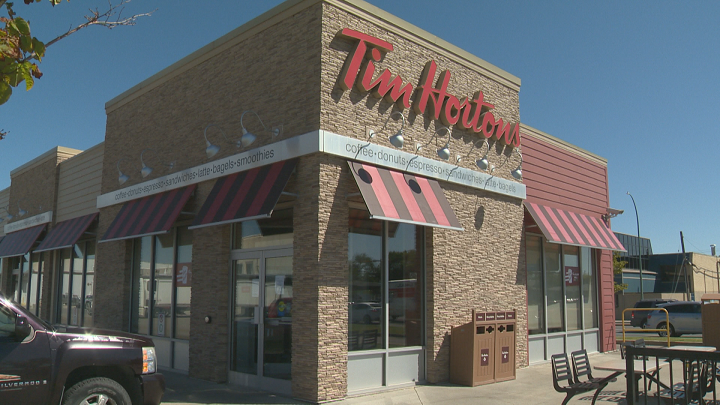An idea that came to fruition close to the former Kamloops residential school gained resounding community support.

Shane Gottfriedson, Joe Quewezance and Mitch Shuter own a Tim Hortons not far from the site where the remains of 215 children were found and in the wake of that discovery they, along with other Indigenous Tim Hortons restaurant owners and Indigenous leaders, came up with a way to help the survivors of those institutions: orange sprinkle doughnuts.
The doughnuts first went on sale on Sept. 30, which was Orange Shirt Day, and were available for a full week with 100 per cent of the retail price (excluding taxes) being donated to the Orange Shirt Society and the Indian Residential School Survivors Society. In all, $1.6 million was raised.

Their Kamloops restaurant sold more than 2,300 doughnuts on the first day of the campaign, a record countrywide.
“We can’t say thank you enough to everyone across Canada who supported this campaign. It’s such an amazing result and we are so proud,” Gottfriedson, former Tk’emlups te Secwepemc First Nation chief and former B.C. regional chief for the Assembly of First Nations, said.
“I also want to thank Tim Hortons and my fellow Tims owners across Canada who stood beside us in launching this campaign and put their hearts into making it such an incredible success story.”

Get daily National news
Orange Shirt Day has been observed on Sept. 30 since 2013, when Phyllis Webstad told her story of her first day of residential school. She was six years old in 1973, excited to be wearing her new clothes and going to school for the first time, only to have her shiny new orange shirt ripped away and learn that she didn’t matter.
Her organization, the Orange Shirt Society, and the Every Child Matters movement she created continue to raise awareness about Canada’s history of residential schools, along with honouring the survivors and their families and the children who never returned home.

“Words can’t express the gratitude that I and the Orange Shirt Society feel with the news of the success of this amazing fundraiser,” said Webstad.
The Indian Residential School Survivors Society has a more than 20-year history of providing services to residential school survivors, their families and those dealing with intergenerational traumas. One of the society’s goals is to continually expand support to partner organizations and maximize access to culturally sensitive emotional, mental, physical and spiritual care.
“We are working tirelessly to support survivors of residential schools and their families through programs and services for the youth, 2SLGBTQ+, elders and families,” Angela White, executive director of the Indian Residential School Survivors Society, said in a press release.
“This donation will allow us to ensure the quality of programs are enhanced in providing safe cultural spaces, and build capacity in offering additional counsellors, therapists and knowledge keepers.”
The Indian Residential Schools Crisis Line (1-866-925-4419) is available 24 hours a day for anyone experiencing pain or distress as a result of their residential school experience.








Comments